

Going solar can help provide peace of mind for whatever nature brings
Wildfires are worsening across North America. Widespread drought and higher temperatures are turning mountainsides into matchboxes. Each year, the fire outlook is seemingly bleaker than the year prior.
That’s the bad news.
The good news is that more people are embracing renewables and resilience measures that can help communities mitigate wildfire risk. By installing solar panels and battery storage, you can decrease your reliance on fossil fuel-generated electricity and power lines that can ignite wildfires while keeping your home powered if the grid goes down.
How Solar + Storage Can Reduce Wildfire Risk
The more homeowners who install solar and battery storage, the less likely the power grid is to become overwhelmed when demand is high, often in the summer when temperatures soar.
Homeowners who produce excess solar during the day can send their energy to the power grid and help keep local electricity networks within their limits. As more renewable generation replaces fossil-fuel power, fewer CO2 emissions are released into the atmosphere — emissions that contribute to climate change and make forests drier and more prone to wildfire.
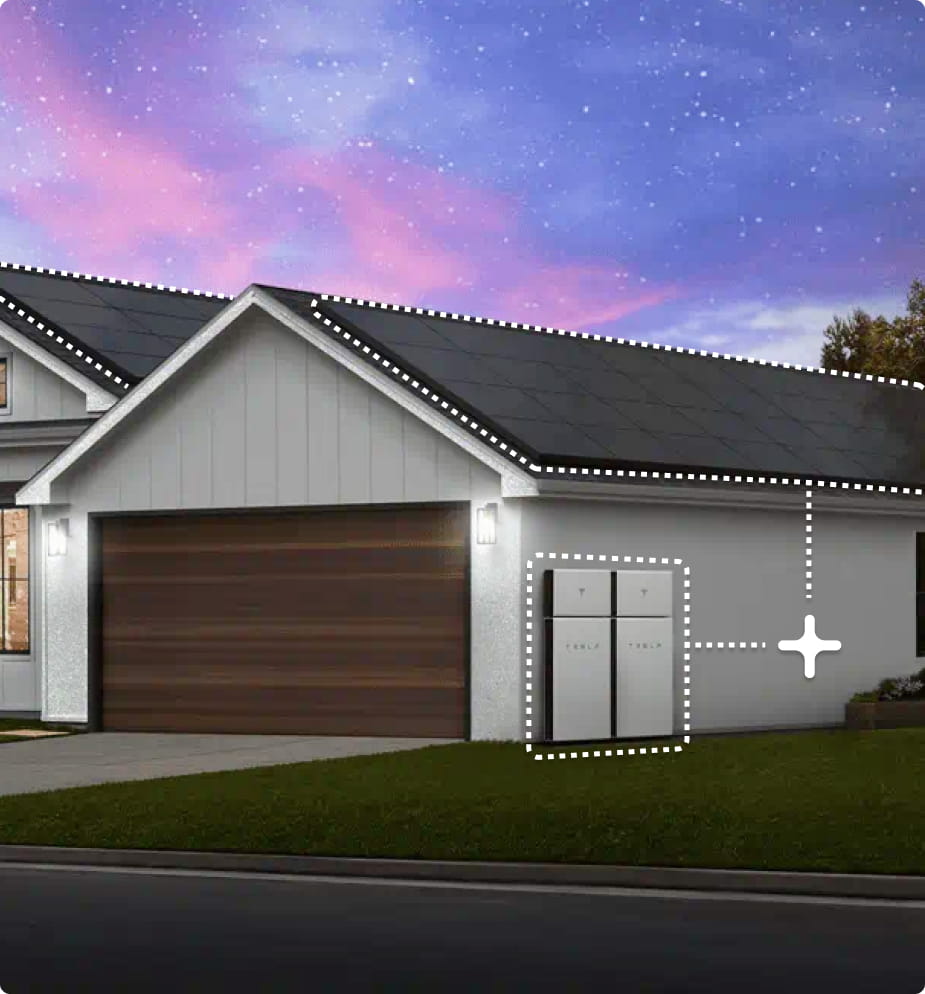
Learn more about how solar and storage can strengthen community resilience.
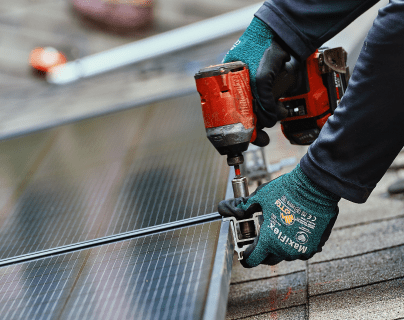
What Happens to Solar Panels in a Fire?
In the event that a wildfire engulfs your home, the chance of your solar panels surviving is slim. Like most electrical infrastructure, solar equipment can combust under intense heat and flames. Aside from the obvious damage — melted modules, cracked cables, and solar cells that appear cloudy — your solar system may suffer thermal stress not visible to the naked eye. This damage could unfold over time, causing safety issues.
Wildfires’ Effects on Panel Efficiency

Your panels will still produce electricity on cloudy days and rainy days, but expect production to be lower than it would be on a day with full sun. Wildfire smoke, however, presents a unique challenge. Not only can the smoke block sunlight, but tiny particles can accumulate on your home solar system and hinder production even more.
For instance, when California endured a record-breaking 2020 fire season, researchers recorded a 30% decrease in solar panel efficiency levels.* Even when the surrounding skies don’t appear particularly smoky, winds can carry tiny smoke particles that decrease surface-level sun exposure up to thousands of miles away.
Your Responsibilities as a Solar Customer
A decrease in production can happen with any type of smoke, not just wildfire smoke. If you have a wood-burning stove or burn bonfires during the summer, make sure to use dry wood. Damp wood generates more smoke and efficiency-degrading soot. Properly cured logs produce the least amount of ash and can help preserve your panels’ efficiency levels.
Rinsing your panels with a hose can keep dust and debris away and help cool them down in the summer months. This protects your system from the efficiency-degrading effects of overheating. (Solar panels are most efficient at temperatures below 77 degrees F*). As they grow hotter, production levels generally decrease.
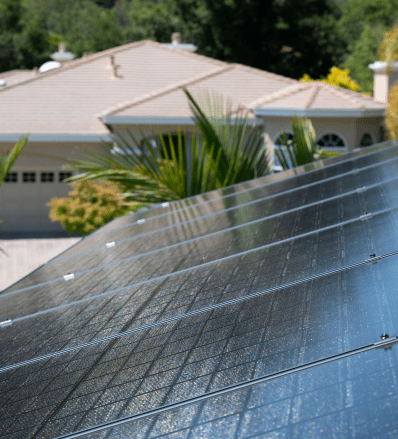
Is Your Solar System Insured for a Wildfire?
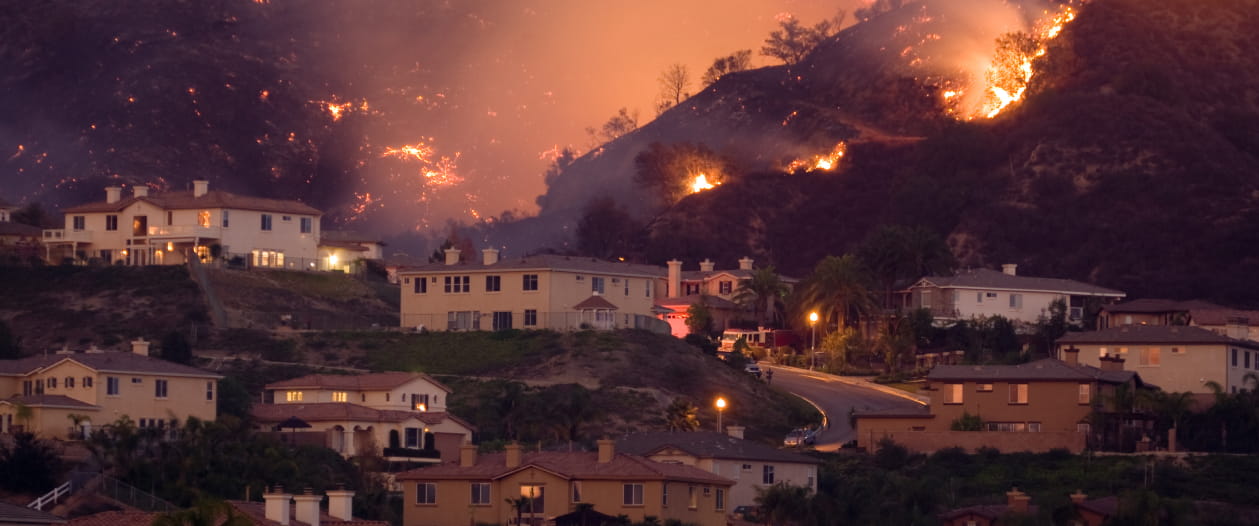
If your region is susceptible to wildfires, it’s crucial to understand how your system is insured – this depends on who owns it.
Third-Party Ownership
When you install solar or opt for a solar plus storage with Sunnova and pay for it via a lease or power purchase agreement (PPA), then we own the system and provide insurance to cover any damage caused by wildfire.
Customer Ownership
If you paid cash or financed your solar or solar plus battery system with a loan, then you own the system and are responsible for insuring it through your homeowner’s insurance. Make sure to confirm that your system will be covered for any fire-related damage, whether it be heat or direct flames.
While it’s the homeowner’s responsibility to file a claim and collect the insurance payment, for any damage to your roof or solar system, Sunnova Repair Services ™ is available (in certain areas) to fix your system. Our team can order and install replacement parts and work with your roofing contractor to remove and reinstall your solar panels.
Learn more about Sunnova Repair Services™
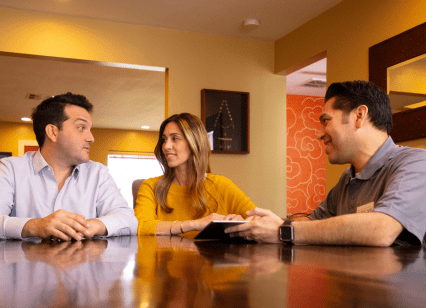
Now is the Time to Plan for Fire Season
It’s never too early to plan for wildfire season. Through Sunnova, it takes an average of three months from the time you get a quote to the day your system is up and running. Don’t wait until the first blaze of the season erupts to start your wildfire mitigation planning. Go solar today and enjoy greater peace of mind for whatever Mother Nature brings.

